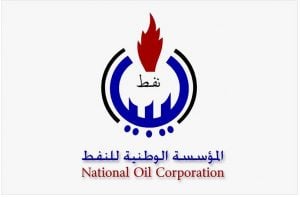By Sami Zaptia.

London, 17 June 2021:
The name of the former Libyan Norwegian Fertilizer Company, Lifeco, has been changed to the Libyan Fertilizer Company.
The news was revealed by the National Oil Corporation (NOC) yesterday at the end of the Libyan Fertilizer Company’s shareholders’ meeting attended by NOC chairman Mustafa Sanalla. Ali Hassan, Chairman of the Libyan Investment Authority (LIA) – the other shareholder in the Libyan Fertilizer Company attended virtually.
The NOC reported that during the meeting, the new name of the company “Libyan Fertilizers Company” was approved, and the necessary legal registration procedures were completed at home and abroad.
In addition to reviewing the agreement, the amendments attached to it, and the minutes of previous meetings, the company’s promising business strategy, and improving its performance in the future were also outlined.
For his part, the Acting Executive Director of Lifeco, Awad Al-Saber, expressed his sincere thanks to the Chairman of the Board of Directors of the NOC for taking this bold plan to save the company and its national cadres from the previous partnership, and for its understanding of the circumstances that the company has experienced since 2013.
For his part, Sanalla stressed the great responsibility that falls on the shoulders of the Chairman and members of the Board of Directors of the company to advance it. He also stressed the adoption of the best standards in public safety, process safety and process modelling, with an emphasis on building new ranks of youth to operate and maintain the company’s factories and maintain its assets.
Background
It will be recalled that the NOC had announced on 4 January that it had acquired Norwegian Yara’s 50 percent stake in the Libyan-Norwegian Fertilizers Company (Lifeco) on 31 December 2020.
Lifeco was a joint venture between the state-owned Norwegian company, which held 50 percent of the shares and the NOC and the Libyan Investment Authority (LIA) held 25 percent each.
The Lifeco plant was part of a chemical complex at Brega. The Brega facility is designed to produce 900,000 tonnes of urea and 700,000 tonnes of ammonia a year. It employs 1,200 people.
The deal had provided for the NOC to supply the gas feedstock on a long-term contract linked to international fertiliser prices. Yara took a lead management role and oversaw a range of upgrades to the plant.
It took two years to cut the deal, finally agreed in 2009. Lifeco JV took over the running of the Brega operation (two urea and two ammonia plants) from NOC subsidiary Sirte Oil Company (SOC). The feedstock was to be supplied through SOC. This former operator also remained in the picture thanks to an agreement which outsourced “a wide range of local services from SOC, including central warehousing, workshop and laboratory services, heavy cranes and marine services, loss-prevention services, housing, canteen and catering services, central office services and transportation.”
Yara corruption in Lifeco JV deal
In 2011 Yara reported itself to the Norwegian National Authority for Investigation and Prosecution of Economic and Environmental Crime (Økokrim), after it uncovered evidence that bribes may have been part of the Lifeco JV deal. Two members of the management team were charged in 2012 in connection with unexplained payments made in 2008.







